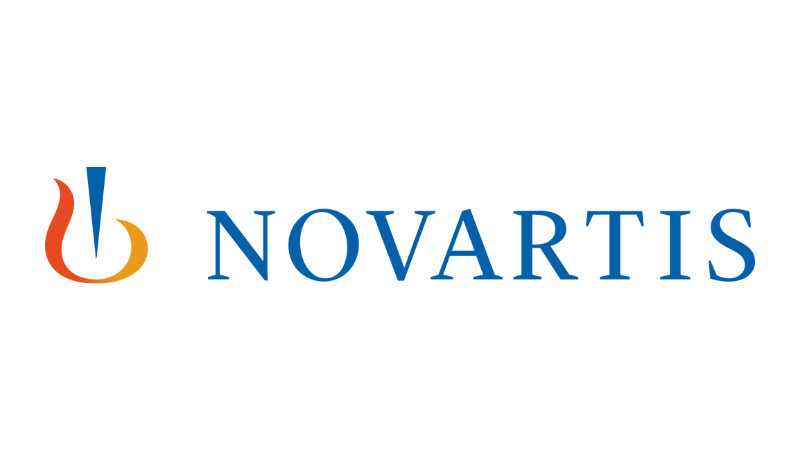Client
Novartis
Challenge
Novartis is committed to raising the awareness and treatment standards of Myeloproliferative Neoplasms (MPNs) which are a group of blood cancers which affect the bone marrow. With MPN-instances relatively rare, there is a very strong educational need so that patients can be diagnosed and treated more effectively. Specific challenges with MPNs are that most people diagnosed are over the age of 60 and occurs in around one in every 100,000 people often developing spontaneously. Also, myelofibrosis (MF) causes scarring of the bone marrow (fibrosis), which affects its ability to produce healthy blood cells and as a result organs like the liver and spleen compensate and produce blood cells in its place.
For those diagnosed with MPNs who do not have symptoms, a ‘watch and wait’ approach to treatment is often recommended. This involves regular monitoring and check-ups with a haematologist, as well as maintaining a healthy lifestyle. If the symptom burden increases, treatment options are; Stem cell transplant in eligible patients with higher-risk disease, cytoreductive therapy (mostly hydroxyurea or interferon), JAK inhibitors, Supportive therapy (e.g. aspirin, steroids, ESAs, phlebotomy).
Novartis global and affiliate country offices asked Guy’s and St Thomas’ (GSTT) Education and Events team and Key Opinion Leader (KOL) Prof. Claire Harrison to support them in delivering preceptorships for healthcare professionals (HCPs) in their regions to upskill them on the disease, research landscape, patient pathways, gold standard care and treatments.
Specific learning objectives of our MPN preceptorship include:
- Review diagnostic and prognostic strategies
- Exploring current treatment landscape for myelofibrosis
- Discussions and workshopping the benefits and limitations of JAK inhibitor therapy.
- future therapeutic options
The preceptorship was to combine interactive lectures, morphology, case studies, worked examples, Q&A sessions and participant feedback.
Solution
Through the mechanism of Preceptorship and a hands-off approach from Novartis, Prof Claire Harrison and her world-leading department created the content of the MPN preceptorship which included diagnostic criteria in MPNs and pitfalls, molecular basis of MPNs, pathology and how to make an accurate diagnosis, management, prognosis and cases in ET and PV, management of pregnancy in MPNs, current management of myelofibrosis, novel therapies for myelofibrosis, BMT in MF who, when and how?, systemic mastocytosis an uncommon MPN, eosinophilia and chronic neutrophilic leukaemia via case studies, MPN research and trials in the UK, nurse-led initiatives in MPN, patient experiences and advocacy.
More recently, we have been able to provide added value to the delegates by sharing more strategic and operational support to HCPs, sharing best practice and overviews of the leading GSTT MPN service.
Other recent content developed includes: what does an obstetric haematology service look like, the nurse’s role in MPN, MPN patient voices, advocacy and partnership at GSTT, rare MPNs: eosinophilia a case-based approach, case discussions focussing on negative BCR-ABL MPNs and stem cell transplantation in MF in 2020 and the management of steroid refractory GVHD.
Outcome
Since the first MPN preceptorship was delivered in 2014 the programme has evolved and been delivered on over 20 occasions to HCPs from all across the world. Preceptorships are very effective ways of closing education gaps and impacting positively on services across the globe, as gold standard NHS practices are disused to wider territories. They are also very effective at creating new networks and the MPN preceptorship have created a legacy of improved care for patients.
Delegate feedback scores
All presentations were rated very highly (4.0/5.0 and above), meaning participants agreed/strongly agreed the session content and delivery style from the speakers was effective, including dealing with questions.
Key learning points:
- Importance of clinical, morphological, and molecular aspects in MPNs
- Bone marrow finding morphologically in each category
- Risk stratification of MF
- Monocytosis as a prognostic marker in PV
- New therapeutic drogues for treatment of myelofibrosis
- Efficacy of ruxolitinib 1st line in MF
- About practical solutions applicable in resource poor settings in MPN
This is the most comprehensive learning programme of MPNs I have attended so far. Through this project, I learned how to diagnose MPNs, especially the pathologic features. Beside that, I also knew how to manage MPNs patients in the optimal way
